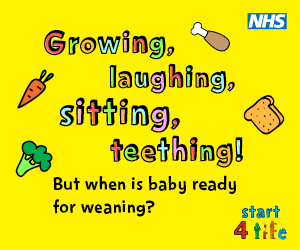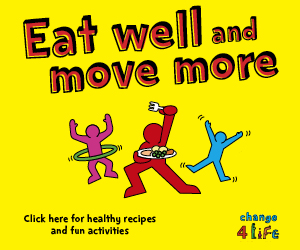Infant Feeding
There are many resources available when discussing infant nutrition, we have collated some useful resources including local Somerset specific information. These links may be useful to you as clinicians or to signpost your patients to.
The information and links provided are for guidance, clinical decisions remain the responsibility of the practitioner; the intention is to help prescribers find evidence based information and does not replace input from appropriate professionals or constitute medical advice for individual patients.
Please contact sam.morris2@nhs.net with any suggested edits or any additional resources you feel would be useful to be shared. These documents will be reviewed when appropriate.
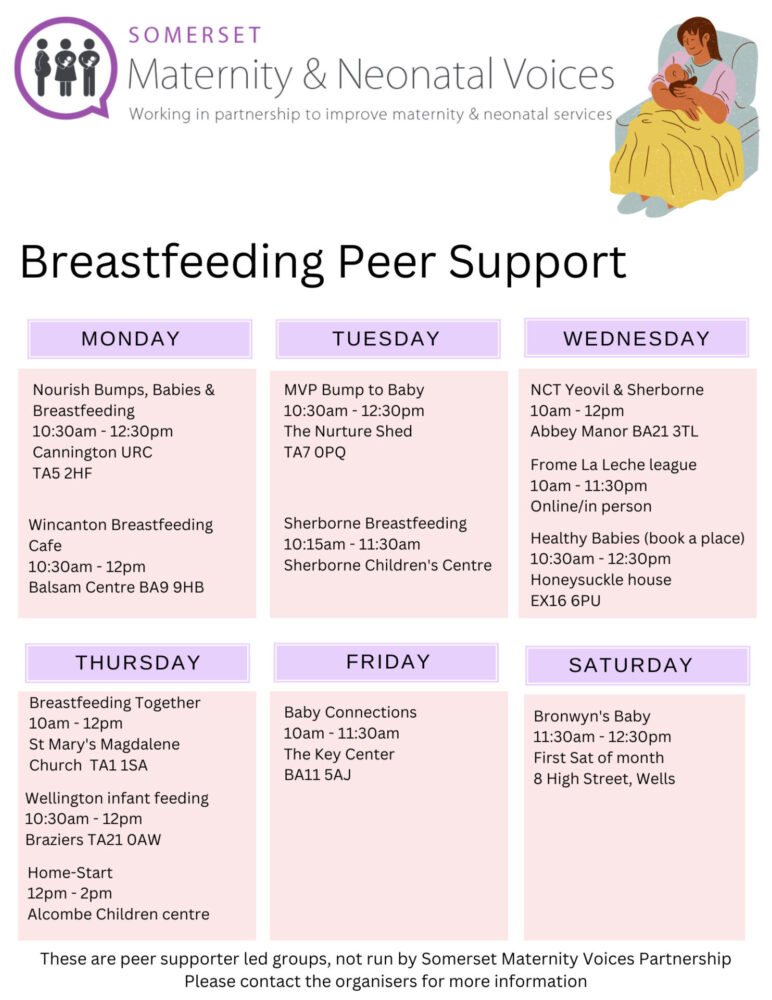
Prescribing Information
Suspected cows milk protein allergy guidelines for breastfed infants
Suspected cows milk protein allergy guidelines for formula fed infants
Patient Webinars – Food allergy in children
First Steps Nutrition have resources on eating well for new mums including information for breastfeeding mothers which has further detailed information on breastfeeding with special diets, including sources of calcium for a dairy free diet while breastfeeding.
See Vitamin D for more information on vitamin D supplementation needs for children and breastfeeding parents.
The Department of Health recommends that:
- Babies from birth to 1 year of age who are being breastfed should be given a daily supplement containing 8.5 to 10 micrograms (µg) of vitamin D to make sure they get enough. This is whether or not breastfeeding/ chestfeeding parents are taking a supplement containing vitamin D themselves.
- Babies receiving more than 500ml (about a pint) of infant formula daily, do not require additional vitamin D supplementation.
- Children aged 1 to 4 years old should be given a daily supplement containing 10µg of vitamin D.
Vitamin D should be taken for the duration of breastfeeding. Advise breastfeeding people to take Vitamin D 10 micrograms per day. PH56 Vitamin D: supplement use in specific population groups. Also suitable for self-care.
Healthy Start vitamins are available for families who qualify for free, see how to apply. Healthy Start women’s vitamin tablets contain folic acid and vitamins C and D (Children’s drops also available). FAQs. The application form must be signed by a midwife, health visitor, doctor or nurse. See Healthy Start for Healthcare Professionals for more information and resources.
Infant Feeding and Family Support
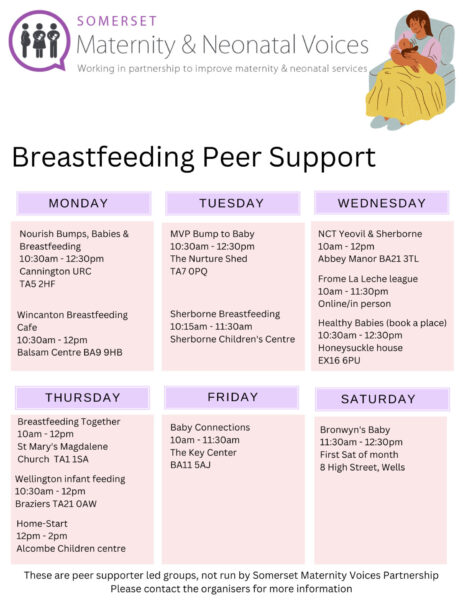
Weekly support groups available for breastfeeding/ chestfeeding peer support
Somerset children & young people : Health and Wellbeing
The maternity toolkit is designed to support people on their journey from pre-conception, pregnancy and beyond.
The Somerset Essential Guide to feeding and caring for your baby 2019 – 2020 is a really useful guide that gives advice and tips on things such as infant feeding, attachment, safety and much more as well as dispelling the myths and misconceptions.
The Somerset Health Visiting Team are available. If a parent requires advice and support they can contact the Health Visiting under-fives Parent Service text line on 07480 635514. Find the Health Visitor telephone number in your area on the Somerset County Council Health Visitor website.
Chat Health is a secure and confidential text messaging service. Health Visitors have a wealth of experience working with mums and dads-to-be, babies, toddlers and young children, and School Nurses with parents and young people 5-19 years of age. The ChatHealth service is available Monday to Friday between 9am and 5pm, including school holidays and excluding bank holidays. Anyone sending a text outside these hours, will receive an automated message with advice on where to get help if they require it urgently. When the service reopens the sender will then receive a reply to the message. ChatHealth runs alongside the normal Public Health Nursing Service.
The numbers are as follows:
Health Visiting under 5’s Parent Service – 07480 635514
School Nursing 5 – 19 Parent Service – 07480 635515
School Nursing 11 – 19 Young Peoples Service – 07480 635516
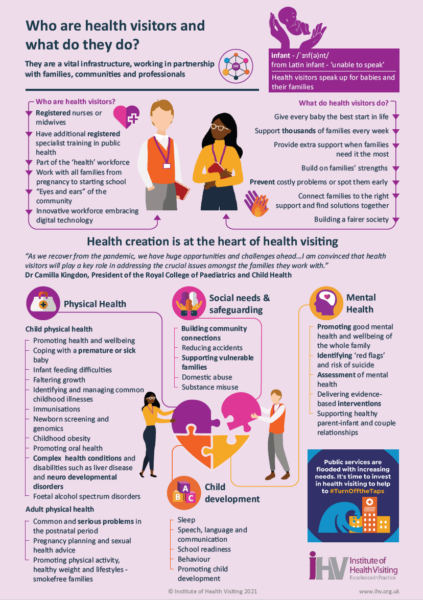
The National Breastfeeding Helpline provides free trained lactation support 365 days a year.

First Steps Nutrition Trust provide nutritional advice, including around formula milk, weaning onto solids and healthy eating. Information is also available for dairy free or vegan diets.
Premature Infant Feeding
Nutriprem Breastmilk Fortifier has been approved for shared care as per the Somerset Traffic Light System after initiation by neonatal dietetics, without formal shared care protocol.
Listed in the Drug Tariff as NUTRIPREM HUMAN MILK FORTIFIER. May be found on other systems as CG IMF POWD HMF Pack of 50G (1g x 50 sachets.)/ Cow & Gate nutriprem human milk fortifier 1g sachet. This may vary if checking ordering systems manually.
Patients who require fortifier will have a treatment plan and guidance on use, usually discontinued at 8 weeks corrected age, some infants will discontinue at 3 months corrected age.
All infants receiving breastmilk fortifier should be under review by the dietitian.
Upon discharge, patients will return home with adequate supply to enable them to organise a repeat prescription with their GP.
Multivitamins
All infants born prematurely (under 37 weeks gestation) will require a prescription of 0.6ml Abidec® per day until their first birthday, at which point national public health policy on childhood vitamin supplementation should be employed. This will be requested regardless of infant feeding method.
NB- Abidec contains refined peanut oil (arachis oil) and should not be taken by patients known to be allergic to
peanut. As there is a possible relationship between allergy to peanut and allergy to soya, patients with soya allergy should also
avoid Abidec Multivitamin Drops.
For non-premature babies, see the above information on Vitamin D supplementation.
Iron Supplementation
Premature infants may require supplementation of iron depending on their birth gestation and weight.
Usually supplied as Sodium feredetate (elemental iron= 27.5mg per 5ml)
If your patient hasn't been discharged on iron, review their clinical need according to the recommendations below. Dietetics are happy to give advice and guidance where a patient plan is not already in place.
All babies born under 34 weeks gestation or birthweight <1.8kg
Babies receiving specialised premature infant formula (including Nutriprem 2® or Gold Prem 2®) or where breastmilk is fortified with SMA Gold Prem® breastmilk fortifier (Prescribed only during admission in hospital) temporarily do not need additional iron supplementation unless clinically indicated otherwise.
For babies over 1.5kg. Dosing below is recommended from 2 weeks of age:
|
Feeding Method |
Sodium feredetate (27.5mg per 5ml) dose: | When to discontinue: |
|
Breastmilk or Fortified breastmilk with Nutriprem® fortifier |
1ml/day |
First birthday |
|
Formula marketed for term infants (standard or specialist) |
0.5ml/day |
First birthday |
Babies born >34 weeks gestation with a birthweight <2.5kg
Babies receiving only term formula (over the counter or prescribed specialist allergy formula) do not need additional iron supplementation unless clinically indicated.
Babies who are breastfed or predominantly breastfed (combination fed breastmilk and formula)- Sodium feredetate (27.5mg per 5ml) dose-0.5ml/day from 2 weeks of age, continued until 6 months actual age.
Specialised Premature Infant Formula
Specialised premature infant formula is usually given until 3 months corrected age, where indicated, Dietetics will suggest this continues until 6 months corrected age for some infants depending on growth. Recommendations for suitability of these products will be made by Dietetics.
You may find more information on weaning a premature child onto complimentary foods alongside their main source of nutrition (milk) on the Weaning your premature baby | Bliss Bliss website.



